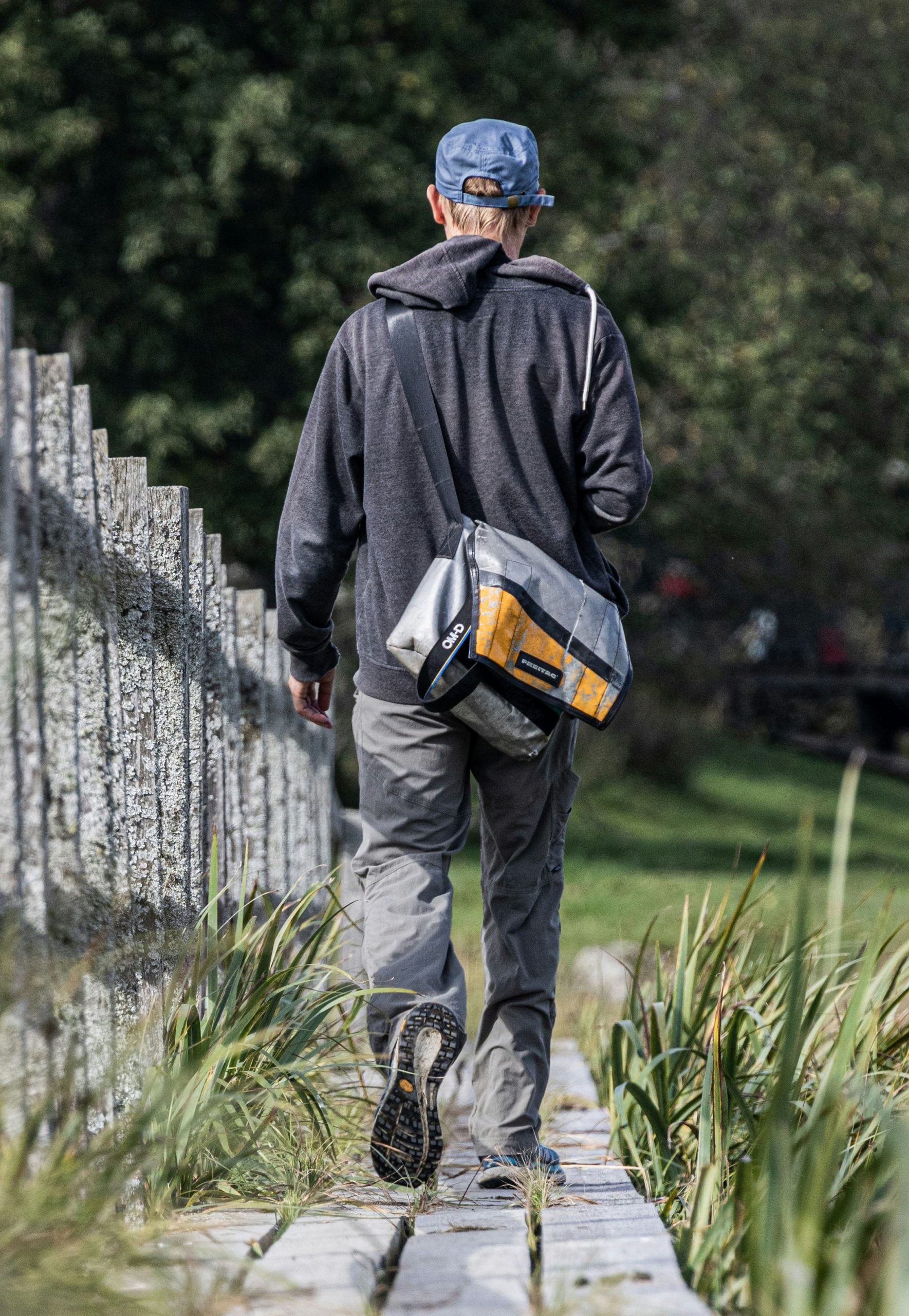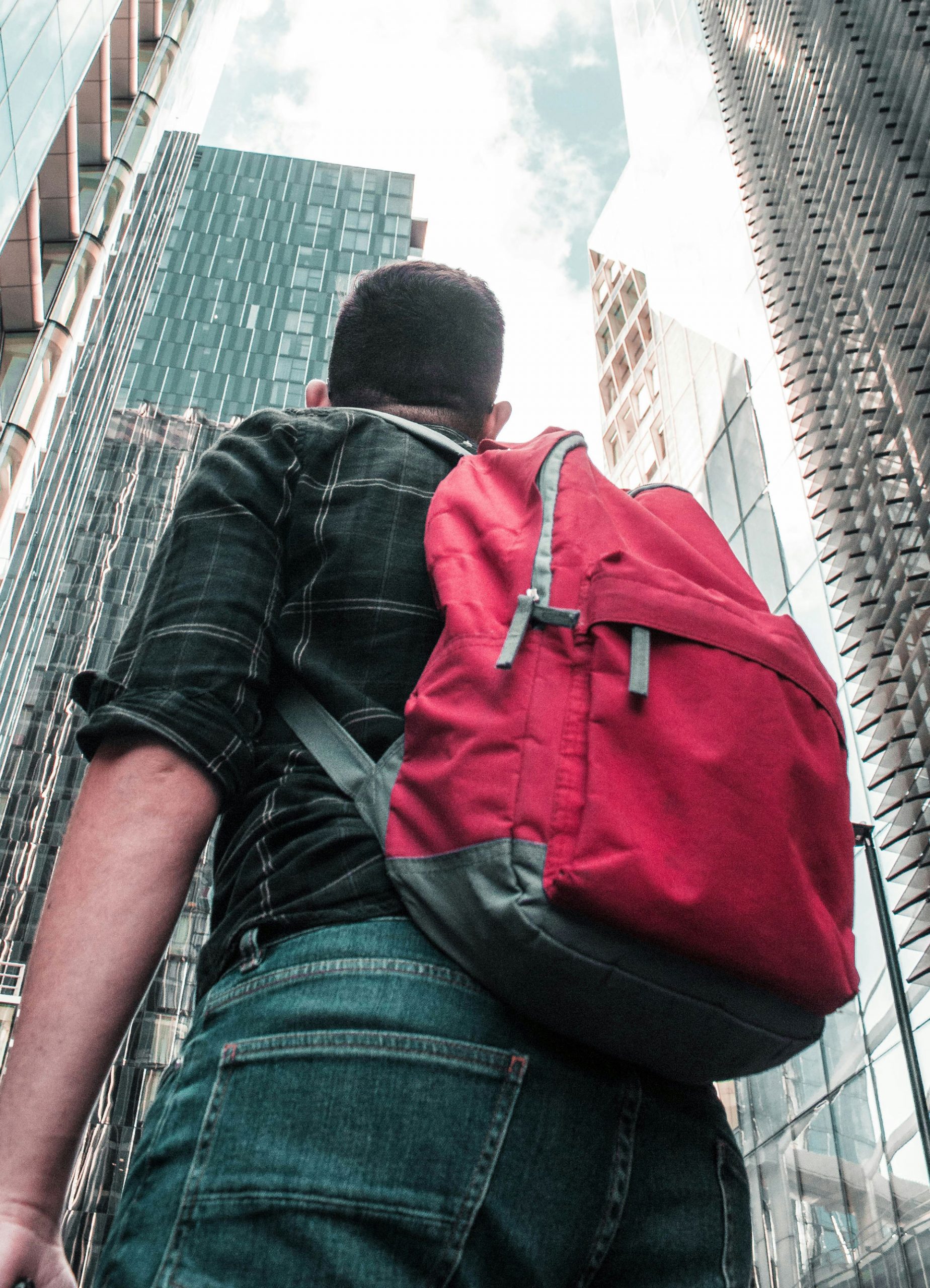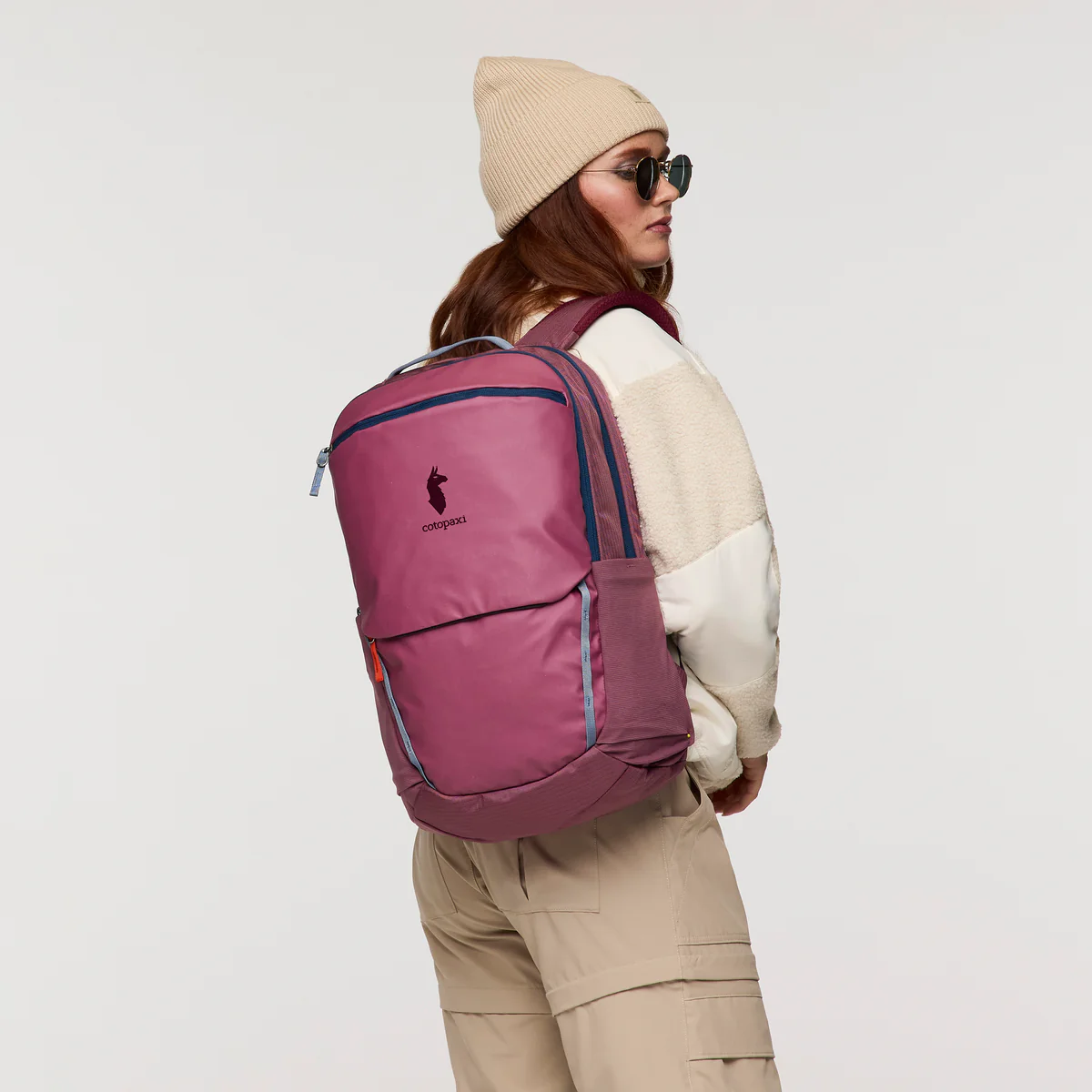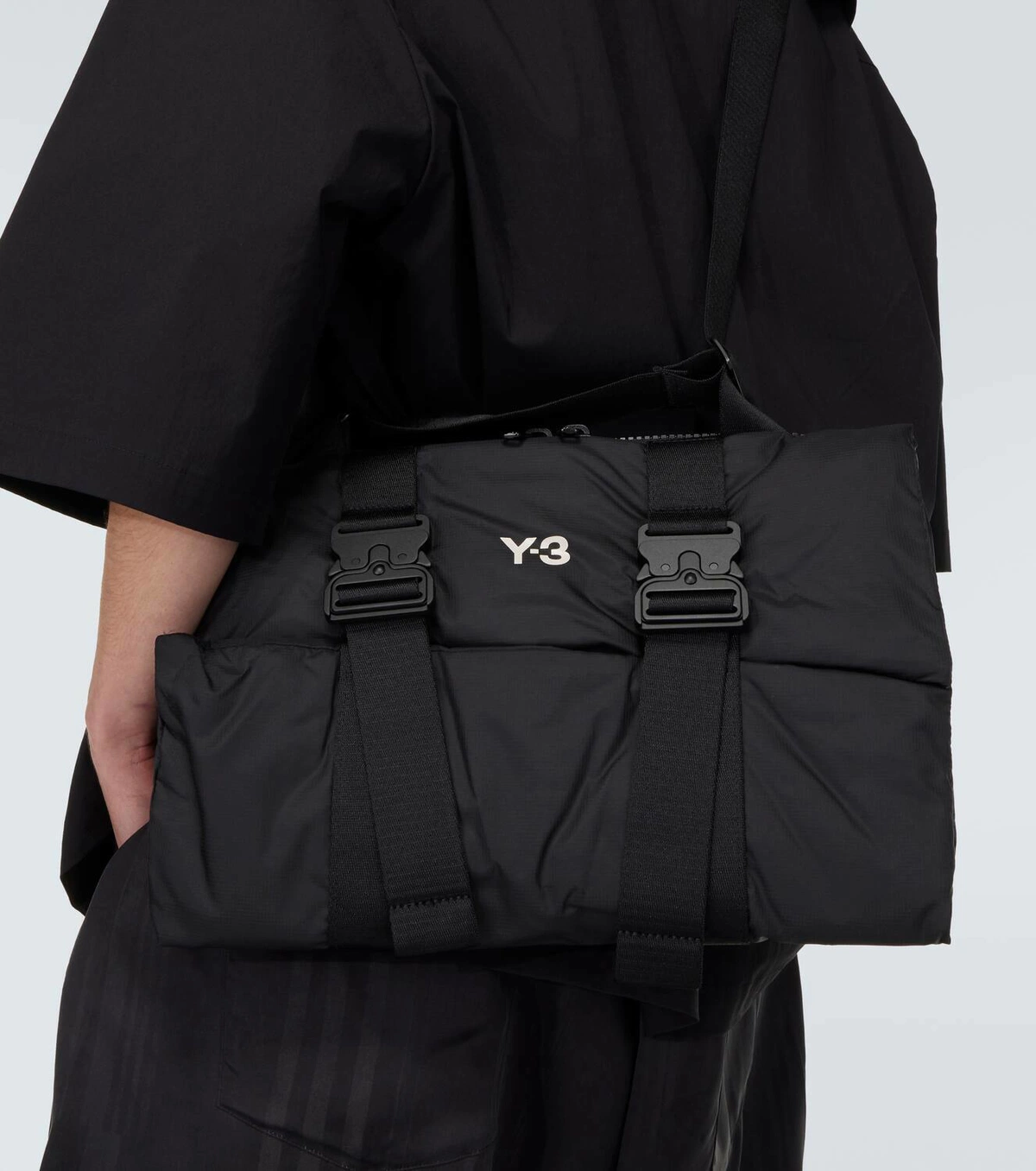When it comes to fashion and usefulness, messenger bags have had quite a ride. They started out as simple bags for postal workers and telegraph carriers in the 1800s. Now, they’re a stylish item. The messenger bag proves that the best ideas come from improving what already works.
Experts think the messenger bag market will grow from $1.2 billion in 2024 to $1.8 billion by 2033. That’s about a 5.2% rise each year. This shows that people really like this bag for carrying their stuff. But the story of the messenger bag is more than just numbers. It’s about city living, new tech, and how we always want things that are both handy and cool.
Messenger bags aren’t just a fad. They used to be for bike messengers and city people, but now they’re for everyone. They’re handy, tough, and easy to use, which is what people want today.
Chapter 1: How It Started – From Telegraphs to Bikes
The Telegraph Age: The Beginning
Messenger bags began in the mid-1800s. Telegraph and postal workers needed a way to carry things without using their hands while walking or biking around town. So, these early bags were just simple leather or cloth sacks with a long strap. This let people spread the weight across their body and keep their hands free.
Going from a simple tool for mail carriers to a cool accessory is one of fashion’s best changes. Most accessories are made to look good first, but the messenger bag became attractive because it was so useful.
Bike Messengers Change the Game
The 1980s and 1990s were big for messenger bags. Bike delivery services popped up in cities like New York, San Francisco, and London. The messenger bag became the go-to bag for these new urban warriors. They were fast, efficient, and had a cool, rebellious attitude.
Timbuk2, a company that started in San Francisco, makes really tough bags for bike messengers. These bags are made to last. This time set the standard for what makes a good messenger bag: strong build, protection from the weather, and easy to get into without taking the bag off.
What Makes Them Special
The bike messenger time made a few key design features important:
Easy to Wear: The strap goes across your body, so the bag sits on your back while you bike. Then, you can swing it around front to grab what you need.
Quick to Open: The buckles and clips can be used with one hand. This is great when you’re on a bike and need to get something fast.
Weather-Proof: These bags were first made for biking in any weather. Good messenger bags keep your stuff safe from rain, snow, and city dirt.
Room to Grow: They can be small when empty but get bigger when you need to carry more. This is helpful for messengers who carry different-sized packages.
Chapter 2: Everyone Starts Using Them – From Streets to Offices
Tech Makes It Happen
In the late 1990s and early 2000s, the internet boom helped messenger bags move from bike messengers to tech workers. People needed to carry laptops, chargers, and other devices but didn’t want to use a stuffy briefcase.
These bags are popular because they’re useful and look good. Students, workers, commuters, and people who care about fashion all use them. Since everyone wants a light bag for laptops and other important stuff, these bags are selling well.
College Students Love Them
College campuses were where messenger bags showed they could really work. Students needed bags for books, laptops, and everything else that comes with school. They also wanted to look cool. Messenger bags were a great choice because they were casual and useful, unlike backpacks.
Fashion Notices
By the mid-2000s, fancy designers started making their own messenger bags. Brands like Prada, Gucci, and Louis Vuitton made bags that looked good but were still useful.
This was a big change. Messenger bags went from being just for work to being a real fashion item without losing what made them great.
Chapter 3: How the Digital Age Changed Them
Laptops Become Important
When laptops became common, messenger bags had to change. Bags needed special padded spots for laptops, ways to keep cables organized, and places for all the other tech stuff people carried every day.
Modern messenger bags have special inside designs:
Laptop Sleeves: Padded spots to hold laptops of different sizes.
Cable Organizers: Pockets and loops for chargers and cables.
Device Storage: Pockets for phones, tablets, and batteries.
Document Storage: Places for paper documents as well as gadgets.
Smart and New
Today’s messenger bags have things that the first bike messengers couldn’t even imagine:
RFID Protection: Blocks people from stealing credit card and passport info.
USB Charging: Lets you charge your devices while you’re out.
Anti-Theft: Hidden zippers, locks, and material that’s hard to cut.
Fingerprint Locks: Some expensive bags can be opened with your fingerprint.
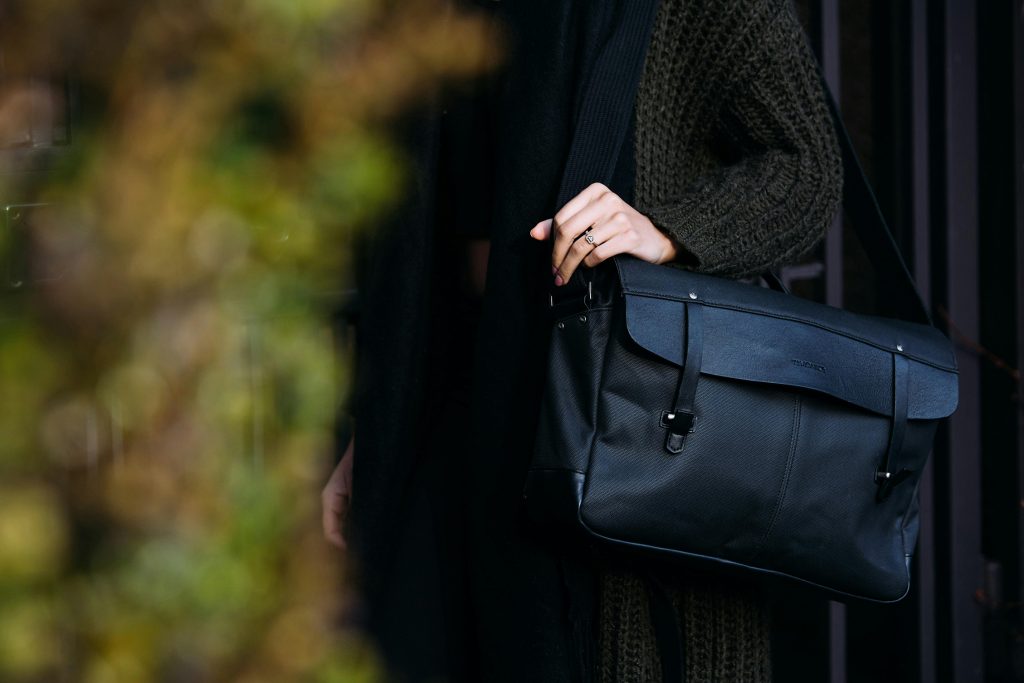
Chapter 4: New Materials – From Cloth to High-Tech
Old-School Materials: The Basics
Classic messenger bags used materials that were strong and could handle weather:
Canvas: A tough cotton cloth that lasts for years of use.
Leather: Fancy bags used leather that looked better with age.
Cordura Nylon: A strong fabric that’s lighter than canvas.
New Tech Materials
Now, messenger bags use new materials that are even better:
X-Pac: A strong but light material originally made for sailboats.
Dyneema: A super-strong plastic that’s stronger than steel for its weight.
eVent and Gore-Tex: Materials that keep water out but let air in, so your stuff stays dry.
Recycled Materials: Fabrics made from recycled bottles and ocean plastic.
Going Green
Taking care of the environment is now a big deal for messenger bags. Companies are using materials and ways of making bags that are better for the planet:
Recycled Fabrics: Turning plastic into useful cloth.
Plant-Based Materials: Using materials made from plants instead of oil.
Easy to Recycle: Making bags that can be taken apart and recycled.
Fair Labor: Making sure workers are treated fairly.
Chapter 5: The Big Names
Timbuk2: The San Francisco Original
Timbuk2 is still the best for messenger bags. They still make their bags in San Francisco and offer a lifetime warranty. Their bags are a great of how the first bike messenger bags have grown.
Popular Bag: Timbuk2 Classic Messenger Bag
Good Things: Lifetime warranty, colors you can change, weather-proof.
How Much: $89-$250
See All Bags: Timbuk2 Messenger Bags
Chrome Industries: Built Like Armor
Chrome Industries makes messenger bags that can handle tough city life. They use seatbelt buckles and strong materials, so bike messengers and commuters love them.
Website: Chrome Industries
Cool Feature: Seatbelt buckles that are strong and easy to open.
Who They’re For: Serious city bikers and messengers.
Peak Design: For Photographers
Peak Design changed messenger bags by making bags just for photographers and video makers. Their bags protect cameras and are still useful for carrying other things.
What’s New: Inside parts that can be changed and weather-proof build.
Who They’re For: Photographers and video makers.
Website: Peak Design
Patagonia: Eco-Friendly
Patagonia makes messenger bags that are good for the environment. They work great and don’t hurt the planet as much.
What They Care About: Recycled materials and good ways of making bags.
Website: Patagonia Messenger Bags
Chapter 6: What’s Happening Now
Bags Are Back
Fashion changes all the time. Something popular can quickly become old. But messenger bags are still a good choice in 2024.
They’re more useful than a tote bag and easier to use than a backpack. That’s why people still pick them for everyday use.
What’s New in Design
Messenger bags are changing in a few ways:
Mix and Match: Some bags can be used as messenger bags, backpacks, or briefcases.
Simple Look: They have clean lines and aren’t too flashy but still work well.
Tech Inside: Some bags have smart features for tech workers.
Eco-Friendly: Made with the environment in mind.
Okay for Work
Messenger bags are now okay to bring to the office. They used to be seen as too casual, but now they’re made to look good in a meeting or on a bike.
Chapter 7: How to Pick the Right One
What Will You Use It For?
First, think about what you need the bag for:
For Commuting: Weather-proof, protects your laptop, and is easy to carry every day.
For Travel: Keeps your stuff safe, has places to organize things, and is strong.
For Creative Work: Has spots for cameras or art supplies.
For School: Not too expensive, strong, and has room for everything.
How Big?
Messenger bags come in sizes:
Small (10-15L): For basic things like tablets.
Medium (15-25L): For laptops and papers.
Large (25L+): For lots of gear or overnight trips.
What Material?
Canvas: Classic, lasts long, gets better with age, okay in weather.
Leather: Looks fancy, gets better with age, needs care, not great in weather.
Tech Fabrics: Best in weather, light, modern look, costs more.
How Much to Spend?
Messenger bags cost different amounts:
Basic ($30-$80): Simple, not too strong. Good for trying out a messenger bag.
Good ($80-$200): Well-made, good materials.
Fancy ($200-$400): Best materials, great build, for professional use.
Luxury ($400+): Designer look, expensive materials.
Chapter 8: What’s Next?
More Tech
Messenger bags will probably have:
Smart Features: Sensors to track where the bag is and keep it safe.
Adapting: Bags that change inside depending on what you put in them.
Health Tracking: Sensors that tell you if you’re carrying too much weight.
More Green
Taking care of the environment will keep being important:
Recyclable: Bags made to be fully recycled when you’re done with them.
Plant-Based: Using materials that grow instead of using oil.
Made Locally: Making bags closer to home to save on shipping.
Easy to Fix: Bags that can be fixed instead of thrown away.
More Popular
More people around the world are starting to use messenger bags.
Chapter 9: How to Wear It
At Work
Messenger bags can look good at work:
Business Casual: Leather or nice cloth bags look good with khakis and button-down shirts.
Creative Jobs: Tech fabrics and bright colors show you work at a modern company.
Meeting Clients: Fancy materials and simple colors show you’re serious.
For Fun
Messenger bags are great for casual times:
Weekends: Easy to carry things for outdoor fun or shopping.
Traveling: Keeps your things safe and organized.
School: Good for carrying books and looking cool.
City Life: Made for getting around town.
For the Season
Spring/Summer: Light materials, bright colors.
Fall/Winter: Protects from weather, dark colors.
Chapter 10: How to Care for It
What Material Is It?
Canvas: Clean with soap, protect from water, dry well.
Leather: Use conditioner, protect from water, get it cleaned by a pro.
Tech Fabric: Follow the directions, don’t use strong cleaners.
How to Make It Last
Check It: Look for weak spots and broken parts.
Fix It: Take care of problems before they get bad.
Store It: Keep it in good shape when you’re not using it.
What’s the Warranty?
Many companies offer warranties:
Timbuk2: Fixes problems for life.
Peak Design: Covers materials and how it’s made.
Chrome Industries: Strong warranty for hard use.
Patagonia: Fixes or replaces bags.
Chapter 11: Why They Matter
City Style
Messenger bags show you’re modern and care about the earth. They’re for people who want things that are useful and real, not just fancy.
For Everyone
Messenger bags are popular with all ages:
Young Adults: Like tech features and eco-friendly materials.
Adults: Want something that looks good at work and lasts.
For All
Messenger bags are for men and women.
Chapter 12: Are They Worth It?
How Much Do You Use It?
A good messenger bag can be worth it if you use it a lot:
Every Day: A $200 bag used every day for five years costs about $0.11 per day.
Can You Sell It Later?
Good messenger bags can be sold later:
Popular Brands: Timbuk2 and Chrome sell for more.
Conclusion
Messenger bags have come a long way. They’ve gone from being used by telegraph carriers to being a popular item today. The important thing is that they’re still useful.
The best thing about messenger bags is that they’ve stayed true to what they’re for while changing with the times. They’re still a great way to carry things without using your hands.
Messenger bags are a good choice for our busy lives.
They’re popular because they’re useful, look good, and have a real style that people like.
Messenger bags will keep getting better by using new tech and materials while staying true to what makes them great.
If you’re thinking about getting a messenger bag, now is a great time. There are lots of choices in materials, features, and prices. Whether you bike to work, do creative work, go to school, or just want something useful and cool, you can find a messenger bag that’s right for you.
Messenger bags will keep changing, but they’ll always be about making your life easier and more stylish.
Shop the Best Messenger Bags
The Classics
Timbuk2 Classic Messenger Bag:
The original bag that started it all
Shop Timbuk2 Classic
Timbuk2 Collection:
All sizes and colors
Timbuk2 Messenger Bags
Modern Bags
Chrome Industries:
Strong bags for city people
Chrome Industries
Peak Design:
For photographers
Peak Design
Patagonia:
Eco-friendly bags
Patagonia Messenger Bags
#MessengerBag #BagEvolution #UrbanCommuter #Timbuk2 #ChromeIndustries #PeakDesign #BicycleMessenger #TechBag #ProfessionalBag #UrbanStyle #CarryEveryday #MessengerStyle #WorkBag #CommuterBag #CrossBodyBag #LaptopBag #UrbanGear #BagTrends2024 #SustainableBags #QualityBags #FunctionalFashion #StreetStyle #CourierBag #MessengerLife #BagDesign #UrbanAccessory #DailyCarry #MessengerBagStyle #ProfessionalAccessory #ModernMessenger #TechAccessory #UrbanProfessional #CarryGear #BagInnovation #TimelessDesign
